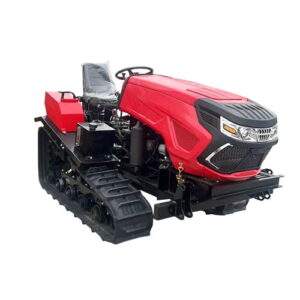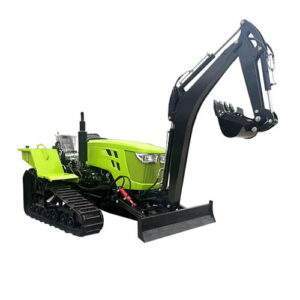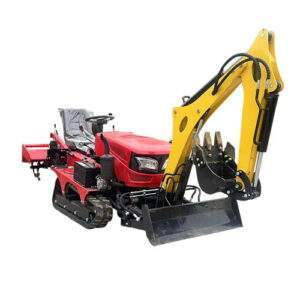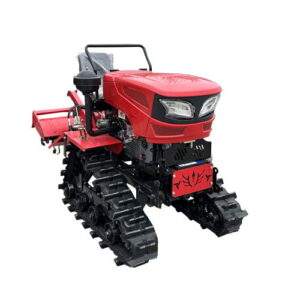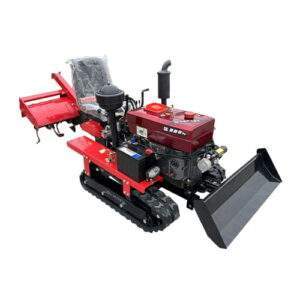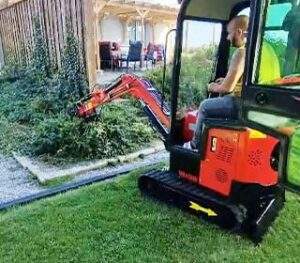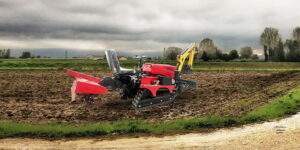How Agriculture Tractors Revolutionize Crop Production
Introduction
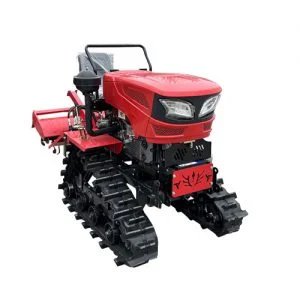
In the realm of modern agriculture, tractors stand as stalwart companions, revolutionizing crop production in unprecedented ways. The marriage of machinery and agriculture has redefined efficiency, productivity, and sustainability. This blog delves into the profound impact of agriculture tractors on crop production, exploring their evolution, functionalities, benefits, and future prospects.
Evolution of Agriculture Tractors
Since their inception in the late 19th century, agriculture tractors have undergone remarkable evolution. From steam-powered behemoths to sleek, GPS-guided machines, tractors have embraced technological advancements to enhance their efficiency and capabilities. The transition from cumbersome manual labor to mechanized farming marked a pivotal moment in agricultural history, catapulting productivity to new heights.
Functionality and Features
Modern agriculture tractors boast a myriad of features tailored to streamline farming operations. From plowing and planting to harvesting and beyond, these versatile machines serve as multifunctional workhorses. Hydraulic systems facilitate precise control and maneuverability, while GPS integration enables autonomous operation and accurate mapping. Furthermore, advancements in engine technology enhance fuel efficiency and reduce emissions, aligning with sustainable farming practices.
Benefits of Agriculture Tractors
The adoption of agriculture tractors has indeed brought about a multitude of benefits for farmers and the agricultural sector as a whole, reshaping the landscape of farming practices and yielding profound advantages:
- Increased Efficiency and Higher Yields: Agriculture tractors are synonymous with increased efficiency, enabling farmers to accomplish tasks in a fraction of the time compared to traditional manual labor. With their power and versatility, tractors streamline essential farming operations such as plowing, planting, and harvesting, resulting in higher yields per acre. The ability to cover large swathes of land efficiently ensures that no time is wasted, maximizing productivity and ultimately contributing to higher profitability for farmers.
- Reduced Labor Costs: Mechanized farming with agriculture tractors significantly reduces the need for manual labor, thereby cutting down on labor costs. Traditionally labor-intensive tasks, such as tilling the soil or weeding fields, can now be completed swiftly and efficiently with the help of tractors, eliminating the need for large labor forces. This reduction in labor costs translates to increased profit margins for farmers, allowing them to invest in other areas of their operations or improve their livelihoods.
- Promotion of Occupational Health and Safety: One of the often-overlooked benefits of agriculture tractors is their role in promoting occupational health and safety for farm workers. Farming is inherently physically demanding, with repetitive tasks and heavy manual labor leading to a high risk of injuries and musculoskeletal disorders. By mechanizing tasks that were previously done manually, tractors help reduce the physical strain on laborers, minimizing the risk of injuries and improving overall workplace safety on farms.
- Optimized Resource Utilization: Precision agriculture techniques facilitated by agriculture tractors revolutionize resource management on farms, optimizing the use of inputs such as water, fertilizers, and pesticides. With features like GPS-guided navigation and variable rate technology, tractors can apply inputs with pinpoint accuracy, ensuring that resources are used efficiently and wastage is minimized. This not only improves crop yields but also reduces the environmental impact associated with excessive use of inputs, promoting sustainable farming practices.
- Environmental Sustainability: Perhaps one of the most significant benefits of agriculture tractors is their contribution to environmental sustainability in agriculture. By optimizing resource utilization and minimizing inputs, tractors help mitigate the environmental impact of farming activities. Reduced fuel consumption and emissions, thanks to advancements in engine technology and operational efficiency, contribute to lower carbon footprints on farms. Additionally, precision agriculture techniques enable farmers to adopt conservation practices such as no-till farming and cover cropping, further enhancing soil health and biodiversity.
Impact on Crop Production
The integration of agriculture tractors into farming practices has revolutionized crop production dynamics. Timely and efficient land preparation, planting, and cultivation are instrumental in maximizing yield potential. Moreover, the ability to mechanize tasks such as irrigation and fertilization ensures optimal crop health and nutrient uptake. Enhanced productivity and consistency contribute to food security and economic stability, empowering agricultural communities worldwide.
Case Studies and Success Stories
Numerous case studies and success stories underscore the transformative power of agriculture tractors in crop production. From small-scale family farms to large agribusiness enterprises, the adoption of mechanized farming techniques has yielded tangible results. Increased yields, cost savings, and improved livelihoods testify to the profound impact of tractors on agricultural sustainability and rural development.
The Future of Agriculture Tractors
As technology continues to advance, the future of agriculture tractors holds boundless potential. Innovations such as AI-driven analytics, robotics, and IoT connectivity promise to further enhance productivity and sustainability. Moreover, the integration of renewable energy sources and precision farming techniques heralds a new era of agricultural efficiency and environmental stewardship. The evolution of agriculture tractors remains intrinsically linked to the future of food production and global food security.
Main advantages of agricultural tractors:
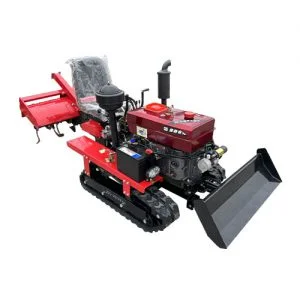
| Benefits | Description |
|---|---|
| Increased Efficiency and Higher Yields | Tractors streamline farming operations, such as plowing and harvesting, resulting in higher yields per acre. |
| Reduced Labor Costs | Mechanized farming reduces the need for manual labor, cutting down on labor costs and increasing profit margins for farmers. |
| Promotion of Occupational Health and Safety | By mechanizing tasks, tractors minimize the physical strain on laborers, reducing the risk of injuries and improving workplace safety. |
| Optimized Resource Utilization | Precision agriculture techniques optimize the use of resources like water and fertilizers, minimizing waste and maximizing efficiency. |
| Environmental Sustainability | Tractors contribute to sustainability by reducing fuel consumption and emissions, as well as enabling conservation practices for soil health and biodiversity. |
Conclusion
In conclusion, agriculture tractors represent more than mere machines; they symbolize progress, innovation, and resilience in the face of evolving agricultural challenges. From their humble beginnings to their transformative impact on crop production, tractors have shaped the landscape of modern farming. As we look to the future, the continued advancement and integration of technology promise to further revolutionize agriculture, ensuring a sustainable and prosperous future for generations to come.
FAQ
Q: How do agriculture tractors contribute to sustainability?
A: Agriculture tractors enable precision farming techniques, minimizing resource wastage and environmental impact. Efficient operations reduce fuel consumption and emissions, promoting eco-friendly farming practices.
Q: Are agriculture tractors suitable for small-scale farming operations?
A: Yes, agriculture tractors come in a range of sizes and configurations, making them adaptable to diverse farming needs. Compact models are well-suited for small-scale and subsistence farming, enhancing productivity and livelihoods.
Q: What maintenance is required for agriculture tractors?
A: Regular maintenance, including oil changes, filter replacements, and inspection of mechanical components, is essential to ensure optimal performance and longevity of agriculture tractors. Additionally, proper storage and cleaning after use help prevent corrosion and damage.

